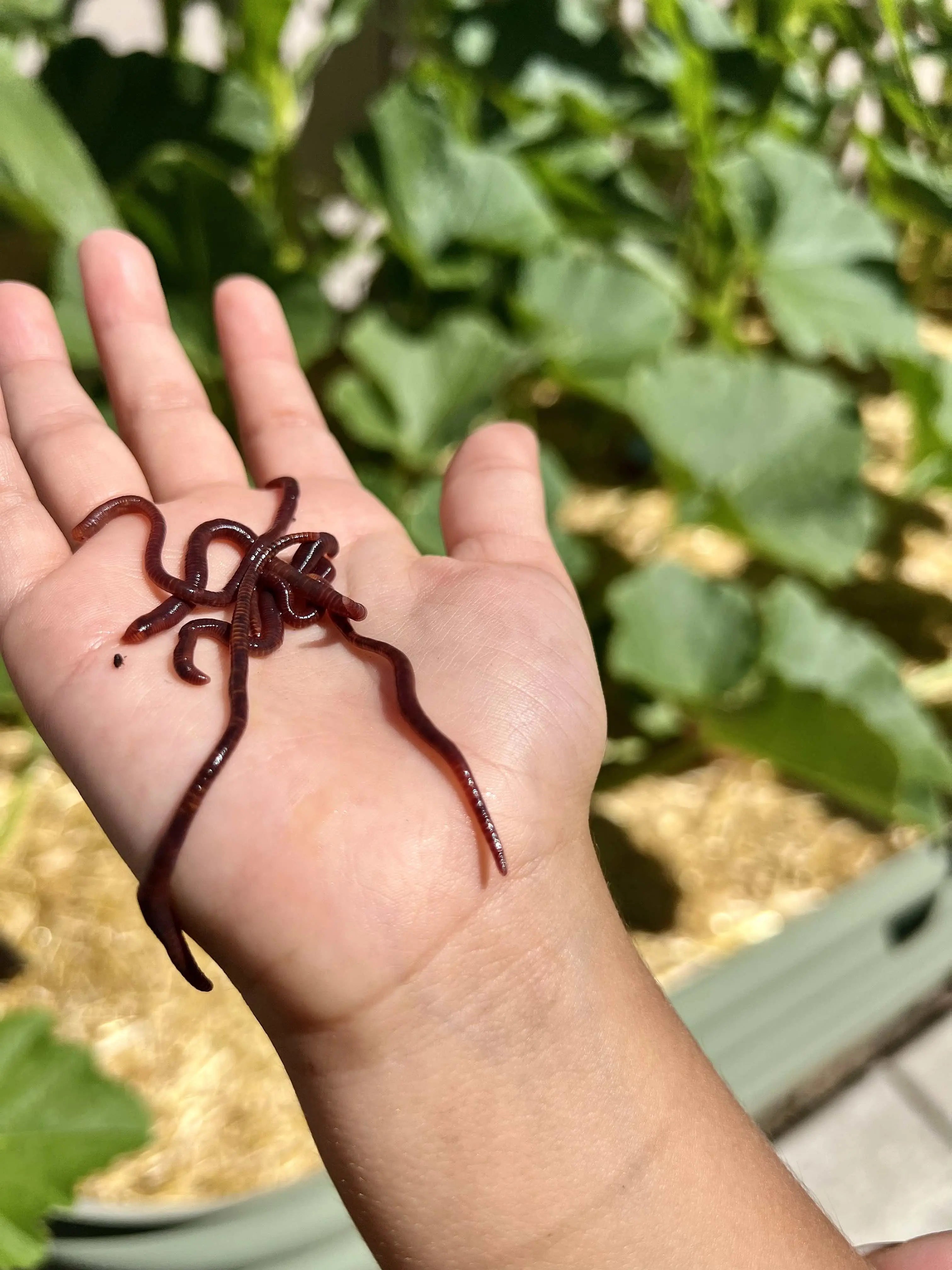Costs Quality Red Wiggler Worms - Boost Your Garden's Fertility
Costs Quality Red Wiggler Worms - Boost Your Garden's Fertility
Blog Article
Red Wiggler Worms Demystified: Opening the Keys of Vermiculture for Greener Living and Nutrient-Rich Dirt
In the realm of sustainable methods for enriching dirt quality and promoting eco-conscious living, red wiggler worms play a crucial yet often ignored function. These simple animals have the remarkable capacity to change natural waste right into nutrient-rich castings that act as a potent natural fertilizer. By delving right into the world of vermiculture, one can uncover a wide variety of benefits that expand far past conventional composting methods. Recognizing the complexities of caring for these worms, maximizing their environment, and using their castings can lead to a greener way of life and healthier dirt for plants to flourish.
The Function of Red Wiggler Worms
Red Wiggler worms play an essential duty in composting systems by efficiently damaging down raw material into nutrient-rich spreadings. These ravenous eaters consume a range of natural products, such as kitchen area scraps, lawn waste, and paper items. As they feed, the worms' gastrointestinal procedures damage down the organic matter right into a penalty, dark, and nutrient-dense product known as worm castings or vermicompost.
The castings created by Red Wiggler worms are very helpful for dirt health and plant growth. They are abundant in vital nutrients like phosphorus, nitrogen, and potassium, which are vital for supporting healthy and balanced plant growth. Furthermore, worm spreadings have advantageous microbes and enzymes that help enhance dirt structure, boost water retention, and enhance nutrient uptake by plants.
Advantages of Vermicomposting

In addition, vermicompost, the nutrient-rich final result of vermicomposting, offers as an exceptional organic plant food and soil conditioner. It boosts soil framework, enhances dirt oygenation, and enhances dirt wetness retention. These homes add to healthier plants with more powerful root systems and far better resistance to insects and diseases. Vermicompost additionally improves the soil with necessary nutrients like nitrogen, phosphorus, and potassium, promoting plant growth and total soil fertility.
In addition, vermicomposting supports lasting horticulture practices by offering a chemical-free and all-natural alternative to synthetic fertilizers. Red Wiggler Worms. This eco pleasant strategy not just enriches the soil but likewise helps in reducing dependence on unsafe chemicals, advertising a greener and much more sustainable method of horticulture
Establishing Up a Worm Container
When developing a worm container for vermicomposting, appropriate configuration is essential to guarantee the success of the composting procedure. The initial step in setting up a worm container is choosing a suitable container.
After including the bedding, present the red wiggler worms to the bin. The worms need to then be provided with food scraps such as fruit and vegetable peels, coffee grounds, and eggshells.
Regularly keep an eye on the moisture degrees and temperature in the worm container to ensure optimum conditions for the worms. With correct setup and upkeep, the worm bin will effectively transform natural waste into nutrient-rich compost for your plants and garden.
Collecting Worm Castings
To successfully collect nutrient-rich worm castings from your vermicomposting system, a methodical harvesting approach is important. When it comes time to harvest the worm castings, there are a few crucial actions to comply with to ensure a successful process.

Troubleshooting Common Issues
Identifying and resolving typical obstacles that may emerge during the vermicomposting procedure is important for maintaining a healthy and balanced and productive worm bin. Including excess food scraps can lead to a buildup of dampness and acidity in the worm container, possibly harming the worms. An additional issue is undesirable smells emanating from the worm container.
Additionally, if the worm population is decreasing or the worms appear undesirable, maybe due to environmental stress factors such as extreme temperatures or pH degrees. Monitoring these variables and making needed adjustments is crucial for the well-being of the worms. By fixing these common problems without delay, vermicomposters can guarantee a successful and smooth vermicomposting process while keeping a thriving worm population.

Final Thought
Finally, red wiggler worms play a critical duty in vermiculture by damaging down raw material into nutrient-rich soil. The benefits of vermiculture include greener living and enhanced soil quality. Establishing a worm container is crucial for effective vermiculture, and collecting worm castings offers important compost for horticulture. By comprehending Read More Here and fixing common issues, people can open the tricks of vermiculture for sustainable living and much healthier dirt.
As they feed, the worms' digestive procedures damage down the organic issue right into a fine, dark, and nutrient-dense material recognized as worm castings or vermicompost.
The spreadings created by Red Wiggler worms are highly advantageous for dirt health and wellness and plant growth. Including excess food scraps can lead to an accumulation of moisture and level of acidity in the worm bin, potentially damaging the worms.Furthermore, if the worm population is decreasing or the worms appear explanation unhealthy, it might be due to environmental stressors such as severe temperatures or pH degrees. Setting up a worm bin is essential for effective vermiculture, and harvesting worm castings gives useful garden compost for gardening.
Report this page